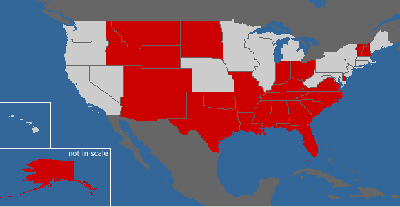There are many reasons the City of Knoxville should go back to the drawing board with the proposed sale of the Candy Factory. There have been many problems with both process and participation.
The problems with process are many. First it is unknown how much money the City of Knoxville has spent maintaining and repairing the Candy Factory in the last twenty years. Much of the perceived need to sell the Candy Factory came from a report requested by the Public Building Authority of Knoxville back in November 2002.
The report was done by consulting firm John R. Wright. This report is very difficult to de-cipher because it depends on the subjective interpretation of City codes. In order to interpret the codes you would first need to know how the building would be used. The bottom line for repairs to the building was listed as 3.2 million dollars in the John R. Wright Conceptual report. The actual needed repairs may be less than 1 million dollars.
One problem is that there is no correlation to the page that lists the repair costs and the pages that describe the code problems. The key to the entire report is the heading “Conceptual”. This report means whatever you want it to mean. City Council should have required a new comprehensive study from a different firm before considering the sale of a valued public asset. This dated report was a poor foundation for City Council to make a decision with.
The second problem with process was a cost savings estimate requested by the City from the PBA. This cost savings estimate stated that the City would save ten million dollars over ten years if it sold the Candy Factory to Kinsey Probasco/Cardinal Construction. The math behind this estimate was tortured. It took the inflated and very subjective 3.2 million dollar repair cost from the 2002 John R. Wright report from the PBA and added to it ten years of annual operating costs of $200,000 per year. Then the PBA added the net present value of the proposed sales price of 1.8 million dollars. Somehow the PBA claimed this added up to ten million dollars. No accounting standard allows for the sale of an asset to be included in a cost savings estimate much less using the net present value of the sales price. This was a deception and misrepresentation.
The third problem with the process was the continued use of the deceptive cost savings estimate by Knoxville Mayor Bill Haslam and his Department of Policy Development Bill Lyons.
The fourth problem with process was how the Amphitheater was dropped from consideration even thought this was supposed to be a comprehensive World’s Fair Park proposal.
The fifth problem with process was when the Sunsphere was moved to another phase of the process. This has been touted as good management. What guarantee is there that the Sunsphere will be saved? What started as a comprehensive plan for the World’s Fair Park is now about selling the Candy Factory and the seven Victorian houses.
Kinsey Probasco still owes millions of dollars of investment from the Market Square project. Supposedly there were guarantees with the Market Square re-development plan also, but where are the condos for the Market Square garage? How can the City be confident the Sunsphere will be repaired and open to the public? Fool the public once, shame on you, fool the public twice and it is time for new representatives.
The first problem with participation was the only workshop in City Council where the public was allowed to explain to City Council the importance of the Candy Factory as a “public civic center” for all of Knoxville and Knox County. Bill Lyons countered that the Arts groups had been moved to the Emporium and everyone was happy. Citizens tried to explain that many non-arts groups relied on the Candy Factory and that a twenty year civic contract had been formed by the use of the building as a meeting place. Over 168 groups had used the Candy Factory in the six months between July ’04 and January ’05. Lyons countered again saying that all groups he had contacted had found new meeting spaces. When the vote was held in City Council it was a 6-3 approval.
The second problem with participation was the meeting at KCDC where only two commissioners and the new KCDC Vice-President were in attendance to listen to the viewpoints of the public. Since the Vice-President cannot vote only two voting commissioners were in attendance. Even though 13 people spoke Bill Lyons was quoted as saying, “We didn’t hear anything at the hearing that we haven’t heard before”. The next morning the KCDC board voted unanimously to approve the sale of the Candy Factory. You cannot hear if you do not listen. Has there been real public participation in this process?
The vote for the final part of the Worlds Fair Park project comes Tuesday January 17, when City Council votes on the Tax Increment Financing (TIF). While it has been touted that the City will receive 1.8 million dollars for the Candy Factory the truth is that the City and County will pay $600,000 to Kinsey Probasco/Cardinal Construction to take the Candy Factory off the City’s hands. The combined City and County TIF is 2.4 million dollars. The result is a net payout to take ownership of the building.
The major legal concern many people have over the proposed TIF is a “reduction” of the term “blighted”. People that live in the Parkridge and the Fourth and Gill area understand that any precedent which reduces the standard of the term “blighted” could affect their ability to keep their home if the City decides it is not maintained to the City’s liking. Some City defenders say this will not matter because the Candy Factory is a City asset. Don’t gamble your future on that premise. This is a serious issue. The Candy Factory is not blighted. How can City Council vote to approve the TIF if doing so means accepting a falsehood?
This was sold to the public as a comprehensive World’s Fair Park project. It is no longer comprehensive nor is it in the best interest of the people. City Council needs to show it will not be manipulated by dated reports and deceptive cost savings. City Council must not establish a dangerous precedent just to satisfy the political needs of a few people.





